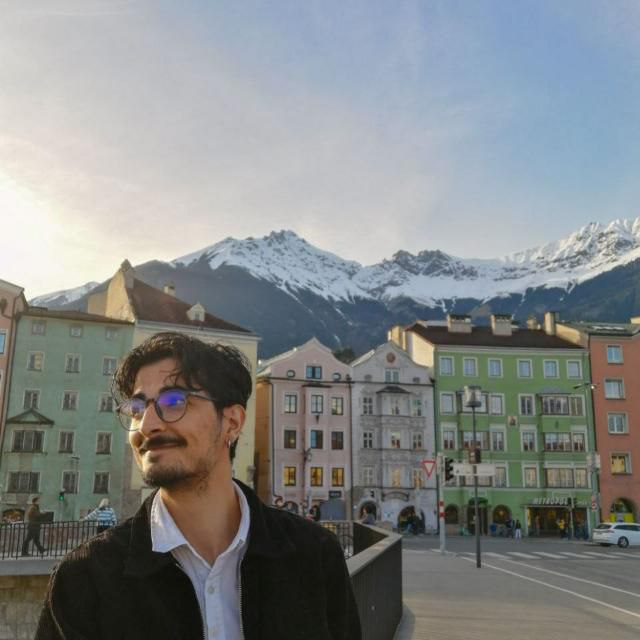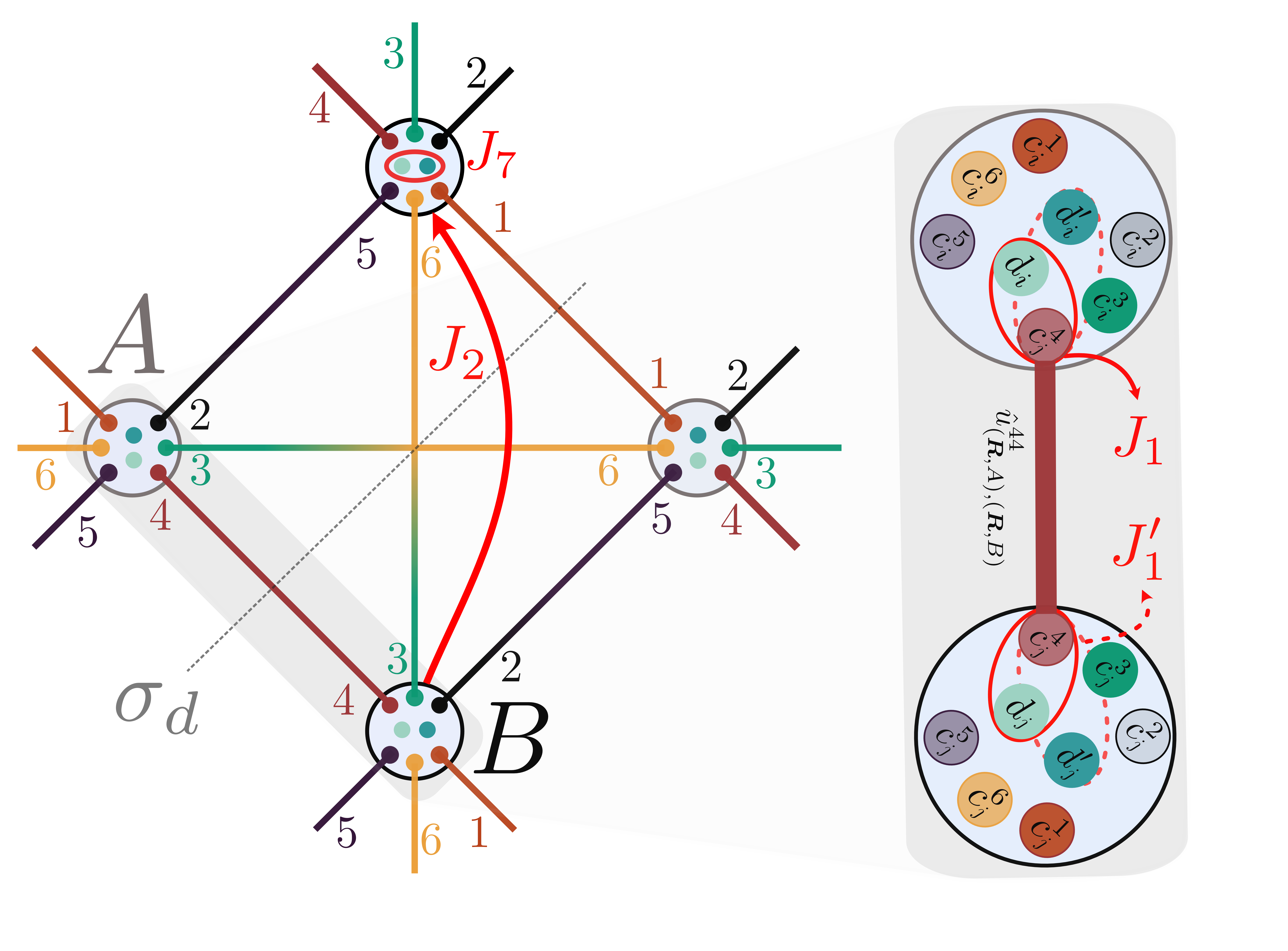
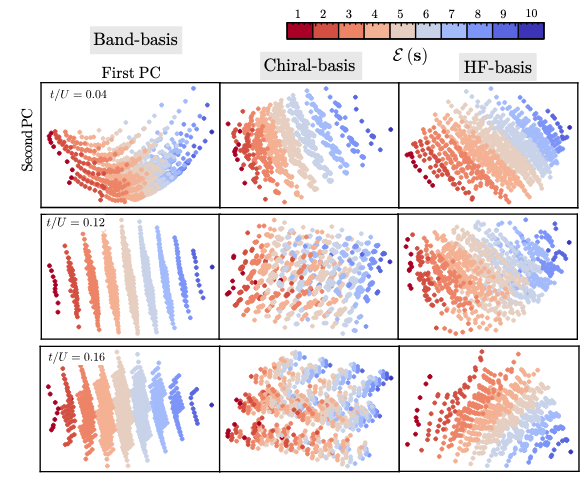
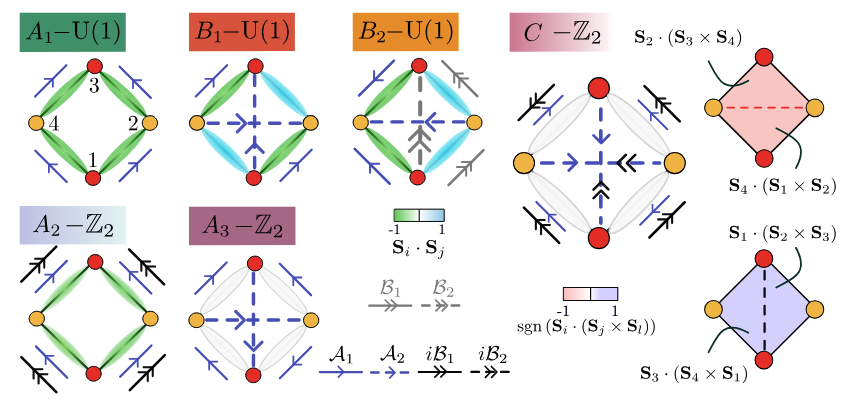
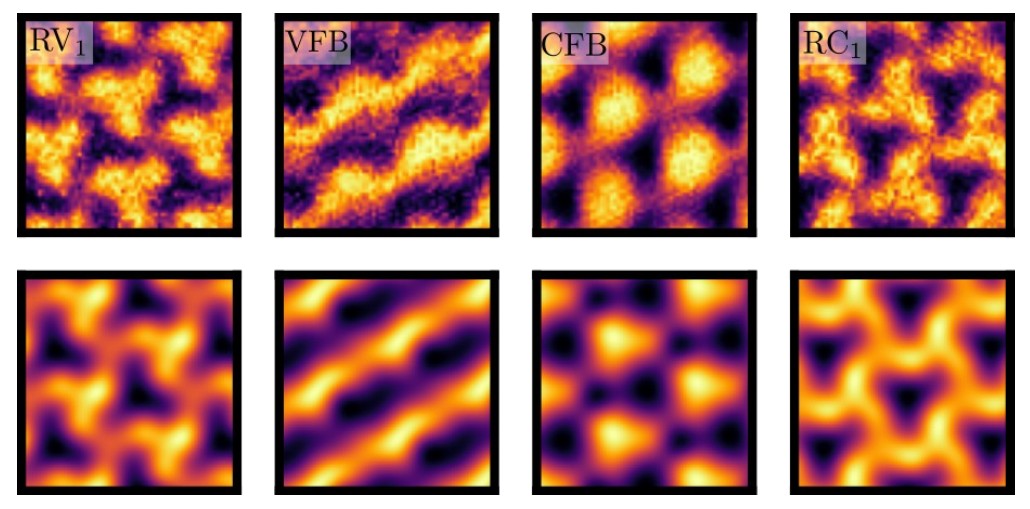
Machine learning the microscopic form of nematic order in twisted double-bilayer graphene
Nature Communications 14, 5012, 2023
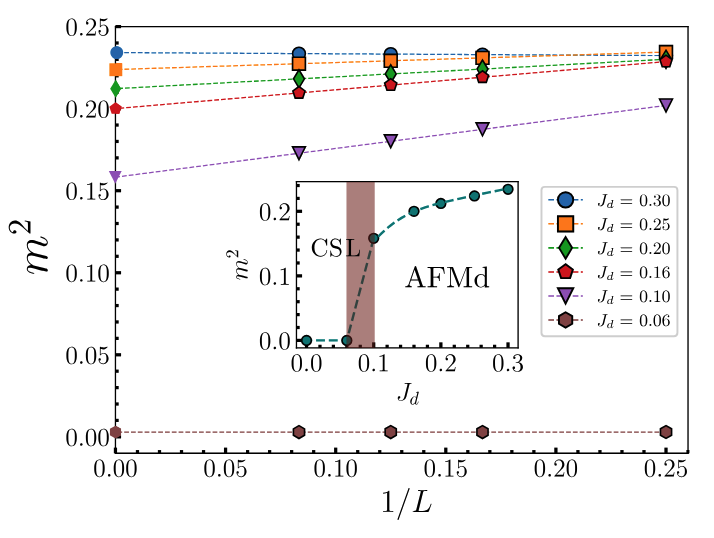
Noncoplanar magnetic orders and gapless chiral spin liquid on the kagome lattice with staggered scalar spin chirality
SciPost Physics 13, 050, 2022
Poster Presentations and Talks
2024
Physics-Informed transformers for electronic quantum states
Generative models for classical and quantum matter (CECAM), December 3. Slides
Generative models for classical and quantum matter (CECAM), December 3. Slides
2023
Machine Learning the Microscopic Form of Nematic Order in twisted double-bilayer graphene
Journal Club for Quantum Physics and Machine Learning — ultracold.org, June 27. Slides
Journal Club for Quantum Physics and Machine Learning — ultracold.org, June 27. Slides
2022
Noncoplanar magnetism and gapless chiral spin liquid on the kagome lattice
Solid State Seminar — Universität Innsbruck, May 11. Slides
Solid State Seminar — Universität Innsbruck, May 11. Slides
Misc
2022
Investigating spin liquids via projected wavefunctions
Master's Thesis, Universidade de São Paulo.
Advisor: Eric C. Andrade
Master's Thesis, Universidade de São Paulo.
Advisor: Eric C. Andrade
2021
Three-body problem with relativistic corrections
McGill Physics Hackathon 2021
With F. Fontinele, P.H. Cintra, I. Reis and V. Dantas.
McGill Physics Hackathon 2021
With F. Fontinele, P.H. Cintra, I. Reis and V. Dantas.
2019
Decay of accelerated fermions, Unruh Effect and applications in the semi-classical regime
Bachelor's thesis (PT-BR), Universidade de Brasília.
Advisor: C. A. S. Maia
Bachelor's thesis (PT-BR), Universidade de Brasília.
Advisor: C. A. S. Maia
Teaching Experience
Winter 2025/26 (February)
Blockpraktikum: Machine learning physics with language models
Lectured by Sayan Banerjee and João Sobral, University of Stuttgart.
Lectured by Sayan Banerjee and João Sobral, University of Stuttgart.
Summer 2025
Quantum Field Theory
Lectured by Prof. Mathias Scheurer, University of Stuttgart.
Hauptseminar on Physics and Machine Learning
Co-advised short project on Auto-regressive Sampling for Quantum Many-Body States.
Organized by Prof. Mathias Scheurer, Prof. Thomas Speck and Prof. Christian Holm.
Lectured by Prof. Mathias Scheurer, University of Stuttgart.
Hauptseminar on Physics and Machine Learning
Co-advised short project on Auto-regressive Sampling for Quantum Many-Body States.
Organized by Prof. Mathias Scheurer, Prof. Thomas Speck and Prof. Christian Holm.
Winter 2024/25
Advanced Quantum Theory
Lectured by Prof. Mathias Scheurer, University of Stuttgart.
Lectured by Prof. Mathias Scheurer, University of Stuttgart.
Summer 2024
Quantum Field Theory
Lectured by Prof. Mathias Scheurer, University of Stuttgart.
Hauptseminar on Moiré Materials and Magnetism
Co-advised short project on Wannier Obstructions.
Organized by Prof. Mathias Scheurer and Prof. Maria Daghofer.
Lectured by Prof. Mathias Scheurer, University of Stuttgart.
Hauptseminar on Moiré Materials and Magnetism
Co-advised short project on Wannier Obstructions.
Organized by Prof. Mathias Scheurer and Prof. Maria Daghofer.
Winter 2023/24
Advanced Quantum Theory
Lectured by Prof. Mathias Scheurer, University of Stuttgart.
Lectured by Prof. Mathias Scheurer, University of Stuttgart.
1st Semester 2021
Introduction to Computational Physics
Lectured by Prof. Francisco Castilho Alcaraz, University of São Paulo (São Carlos).
Lectured by Prof. Francisco Castilho Alcaraz, University of São Paulo (São Carlos).
2nd Semester 2018
Methods of Experimental Physics
Lectured by Prof. Alexandra Mocellin, University of Brasília.
Lectured by Prof. Alexandra Mocellin, University of Brasília.
1st Semester 2018
Laboratory of Oscillations, Waves and Fluids
Lectured by Prof. Alexandra Mocellin, University of Brasília.
Lectured by Prof. Alexandra Mocellin, University of Brasília.
2nd Semester 2017
Waves, Optics and Thermodynamics
Lectured by Prof. Clovis Achy Soares Maia, University of Brasília.
Computational Methods A
Lectured by Prof. Luiz Antonio Ribeiro Junior, University of Brasília.
Lectured by Prof. Clovis Achy Soares Maia, University of Brasília.
Computational Methods A
Lectured by Prof. Luiz Antonio Ribeiro Junior, University of Brasília.
1st Semester 2017
Laboratory of Mechanics
Lectured by Prof. Júnio Marcio Rosa Cruz, University of Brasília.
Lectured by Prof. Júnio Marcio Rosa Cruz, University of Brasília.
1st Semester 2016
Calculus 1
Organized by Prof. Guy Grebot, University of Brasília.
Organized by Prof. Guy Grebot, University of Brasília.
